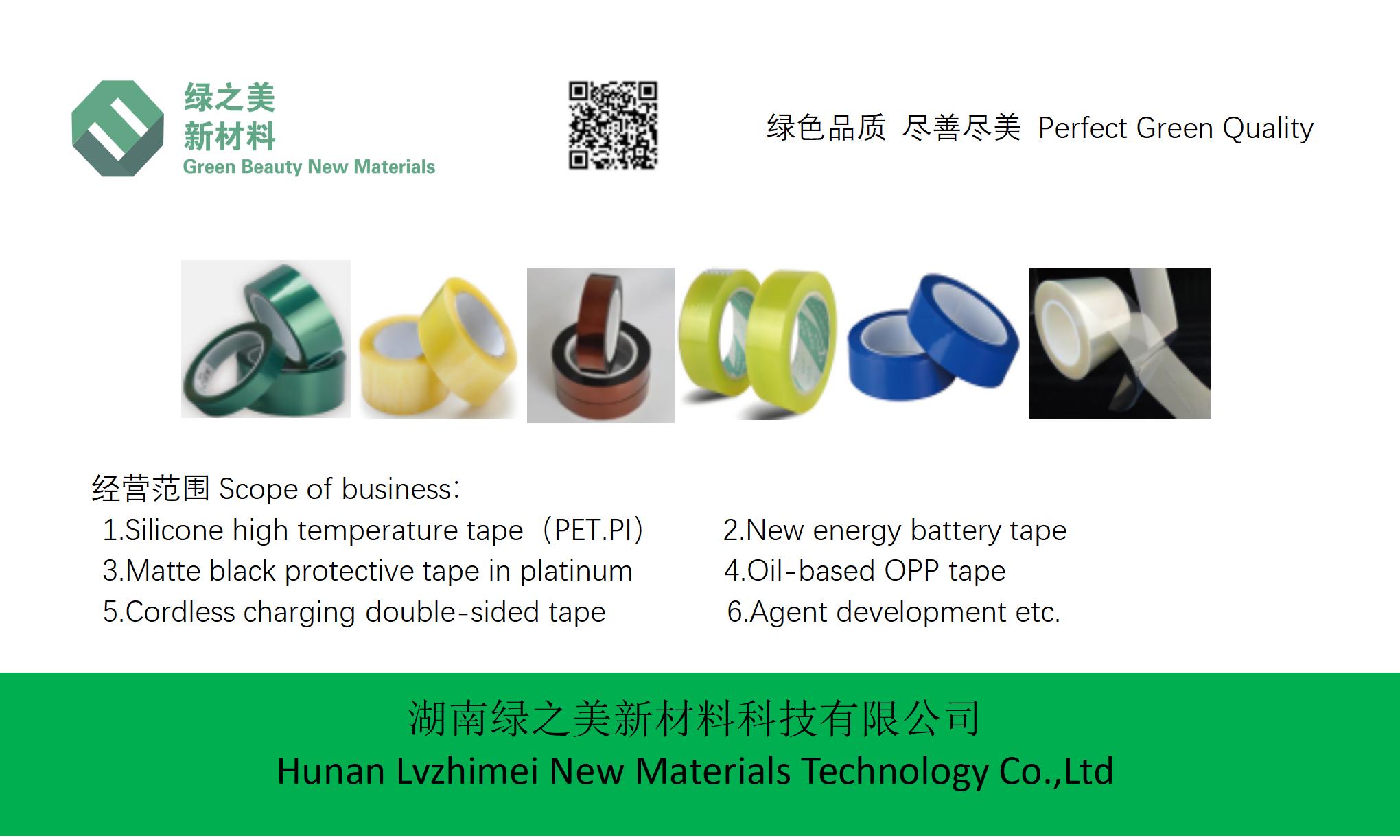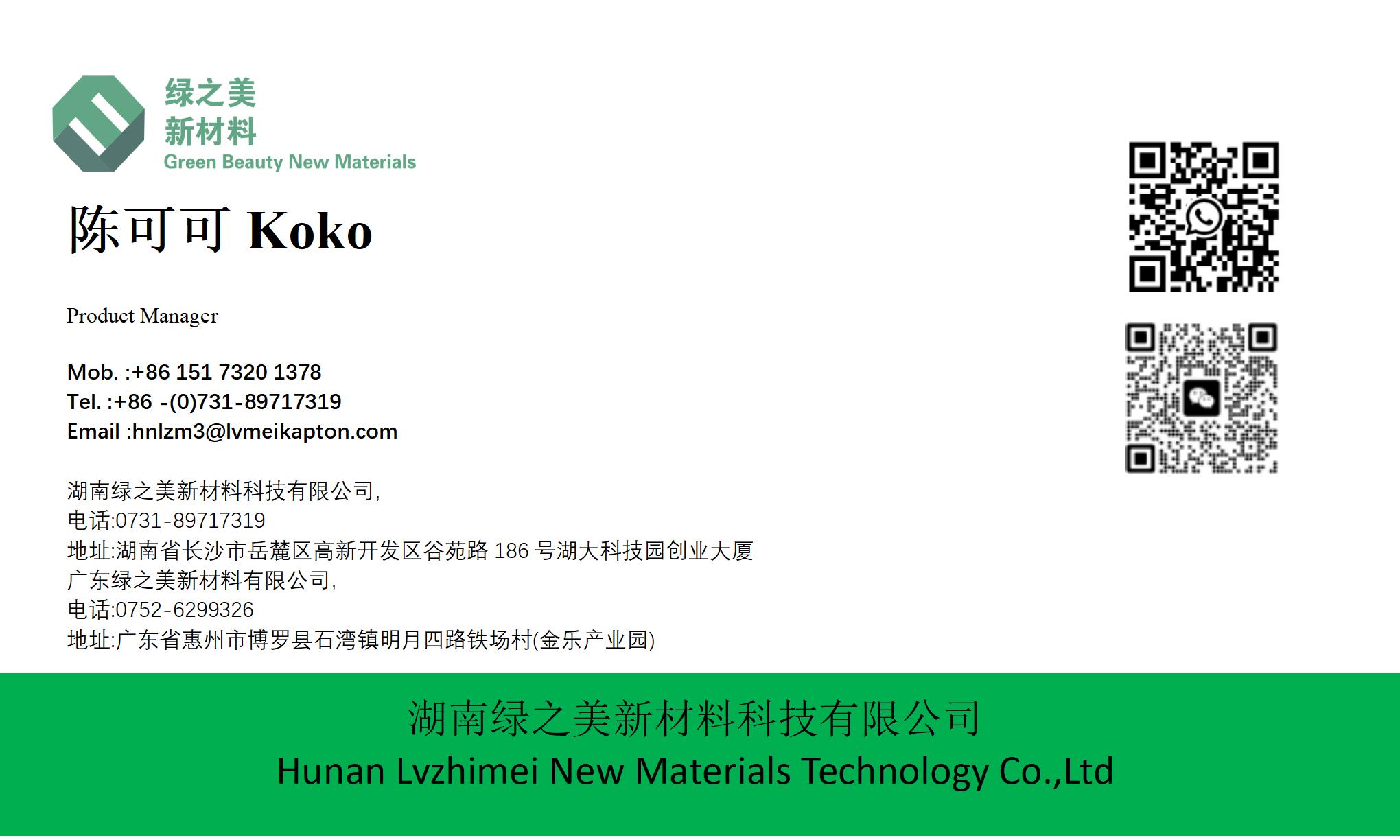hnlzm@lvmeikapton.com
+86 13787123465


Hunan Lvzhimei New Material Technology Co., Ltd.


NameDescriptionContent
What Are the Safety Standards for lvmeikapton Insulating Electrical Tape? |https://www.lvmeikapton.com/
Source:
|
Author:Koko Chan
|
Published time: 2025-05-15
|
40 Views
|
Share:
lvmeikapton insulating electrical tape is a high-performance adhesive product designed for electrical insulation and protection in demanding environments. This article provides an overview of the safety certifications and compliance standards governing its manufacture and application, with a focus on meeting global regulatory requirements such as UL, RoHS, and REACH, as well as adhering to PI material high temperature resistant 300 tape norms and flame-retardant ratings specified for Brown circuit board high temperature tapes.
What Are the Safety Standards for lvmeikapton Insulating Electrical Tape?lvmeikapton insulating electrical tape is a high-performance adhesive product designed for electrical insulation and protection in demanding environments. This article provides an overview of the safety certifications and compliance standards governing its manufacture and application, with a focus on meeting global regulatory requirements such as UL, RoHS, and REACH, as well as adhering to PI material high temperature resistant 300 tape norms and flame-retardant ratings specified for Brown circuit board high temperature tapes.
1. Overview of lvmeikapton Insulating Electrical Tape
lvmeikapton tape is crafted from polyimide (PI) film—a thermoplastic polymer renowned for its exceptional thermal stability, electrical insulation properties, and chemical resistance. The tape’s construction typically involves a PI film substrate coated with silicone adhesive, enabling it to withstand temperatures up to 300°C continuously and 短期耐温可达400°C (short-term). This makes it suitable for applications in electronics, aerospace, automotive, and industrial machinery, where exposure to extreme heat, chemicals, and electrical stress is common.
Key Features:
●
High-Temperature Resistance: Maintains stability from -70°C to +300°C.
●
Electrical Insulation: Withstands voltages up to 8.5 kV (dependent on thickness).
●
Flame Retardancy: Meets UL 94 V-0 or equivalent standards.
●
Chemical Resistance: Resistant to acids, alkalis, solvents, and oils.
2. Compliance with International Safety Standards
2.1 Underwriters Laboratories (UL) Certification
The UL certification ensures that lvmeikapton tape meets stringent safety criteria for electrical components. Key requirements include:
UL Standard | Testing Parameters | lvmeikapton Compliance |
UL 510 | Flame resistance, dielectric strength, thermal aging tests. | Passes vertical burn test (UL 94 V-0), withstands 300°C aging. |
UL 746E | Electrical properties under high temperatures. | Maintains insulation up to 300°C with ≤5% degradation. |
UL 224 | Adhesion strength and abrasion resistance. | Exhibits >2.0 kg/cm² adhesive strength, withstands 500 cycles. |
Notable Compliance:
●
Flame Retardancy: lvmeikapton tape’s PI substrate inherently resists combustion, emitting minimal smoke and toxic fumes. This aligns with Brown circuit board high temperature tape specifications, which mandate UL 94 V-0/V-1 ratings for board protection.
2.2 Restriction of Hazardous Substances (RoHS) Directive
RoHS 2.0 (2011/65/EU) restricts the use of 10 hazardous substances in electrical/electronic equipment (EEE). lvmeikapton tape’s composition aligns with RoHS by:
1.
Eliminating: Lead (Pb), Mercury (Hg), Cadmium (Cd), Hexavalent Chromium (CrVI), Polybrominated Biphenyls (PBBs), Polybrominated Diphenyl Ethers (PBDEs), and additional phthalates (DEHP, BBP, DBP, DIBP).
2.
Material Verification: Third-party testing confirms absence of restricted substances, ensuring eco-friendly production and disposal.
Impact: RoHS compliance enables lvmeikapton tape to be used in green electronics (e.g., solar panels, EV components) without environmental or health risks.
2.3 Registration, Evaluation, Authorization, and Restriction of Chemicals (REACH)
REACH (EC No. 1907/2006) governs chemical safety in the EU. lvmeikapton tape’s compliance involves:
1.
Substance Registration: PI and silicone adhesive components are registered under REACH, ensuring transparency.
2.
SVHC Avoidance: The tape does not contain any of the 223+ Substances of Very High Concern (SVHC) listed as of 2025.
3.
Authorization: As a non-SVHC product, it requires no specific authorization for market entry.
Key Benefits:
●
Global Trade: REACH compliance facilitates distribution across EU markets without regulatory hurdles.
●
Sustainability: Assures end-users of non-toxicity and recyclability.
3. Technical Specifications and Performance Metrics
3.1 Electrical Properties
Property | Value | Test Standard |
Dielectric Breakdown | ≥8.5 kV/mm | ASTM D149 |
Volume Resistivity | 1×1016 Ω·cm | ASTM D257 |
Surface Resistivity | 1×1015 Ω/sq | ASTM D257 |
Dielectric Constant | 3.4 at 1 MHz | ASTM D150 |
3.2 Thermal Performance
Temperature Range | Performance |
Continuous Use | -70°C to +300°C |
Short-Term Exposure | Up to 400°C for 1 hour |
Thermal Conductivity | 0.3 W/(m·K) |
Thermal Aging Test | ≤5% degradation after 1000 hours at 300°C (UL 746B) |
3.3 Mechanical Strength
Property | Value | Test Standard |
Tensile Strength | 150 N/cm | ASTM D882 |
Elongation at Break | 50% | ASTM D882 |
Adhesion to Steel | 2.5 N/cm | ASTM D3330 |
Abrasion Resistance | ≤0.05 g/1000 cycles | ASTM D1044 |
4. Application Guidelines and Marking Verification
To ensure safety and performance, lvmeikapton tape must be used in accordance with the following guidelines:
1.
Surface Preparation: Ensure substrates are clean, dry, and free of contaminants.
2.
Wrapping Technique: Apply tape with 50% overlap, maintaining even tension (2.0 kg/cm² pressure) to prevent air pockets.
3.
Storage: Keep in original packaging at 15-28°C and 40-70% RH; avoid sunlight and moisture.
4.
Marking Verification: Check tape rolls for UL, RoHS, REACH logos and lot numbers to confirm authenticity.
Example Marking:
UL Recognized Component File No. E123456 RoHS Compliant REACH Registered Max Temp: 300°C
5. Case Studies: Industry-Specific Applications
5.1 Automotive Electronics
lvmeikapton tape is used in hybrid vehicle battery packs to insulate high-voltage cables. Its 300°C resistance ensures safety during thermal runaway tests, while RoHS compliance aligns with eco-friendly automotive regulations.
5.2 Aerospace Wiring
In satellite systems, the tape’s PI substrate withstands extreme temperatures (-50°C to +200°C) and radiation exposure. REACH and UL certifications ensure reliability in critical applications.
5.3 Industrial Transformers
lvmeikapton tape replaces traditional insulation materials in oil-immersed transformers due to its resistance to AC voltage up to 15 kV and thermal aging. This extends equipment lifespan and reduces maintenance costs.
6. Conclusion
lvmeikapton insulating electrical tape’s compliance with UL, RoHS, and REACH standards, coupled with its PI material high temperature resistant 300 tape properties, establishes it as a trusted solution for safety-critical applications. By meeting stringent flame retardancy, electrical insulation, and environmental criteria, it enables industries to balance performance with regulatory adherence.
Future Considerations: As global safety norms evolve (e.g., REACH SVHC expansions), continuous testing and certification updates will remain imperative to maintain market leadership.



Hunan Lvzhimei New Material Technology Co., Ltd.
Quick Links
Product Categories
© 2024 Hunan Lvzhimei New Material Technology Co., Ltd.All Rights Reserved. Designed by Erge
0731 - 89717319
hnlzm@lvmeikapton.com
+86 13787123465
Room 502, Chuangye Building, No186, Guyuan Road, High-Tech District, Changsha, Hunan, China
CONTACT



